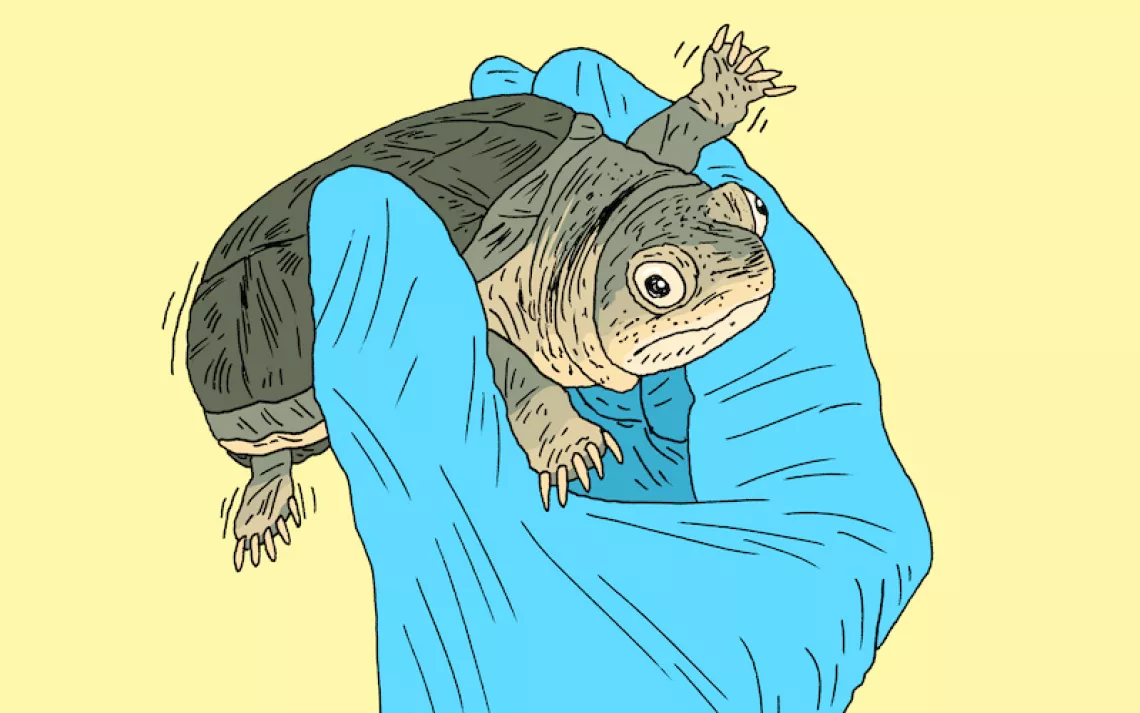ICYMI: Turtle Transfer, Parks Reopen & Giant Lizards in Georgia
A weekly roundup for busy people

Illustration by Peter Arkle
Mexico seizes a shipment of 15,000 freshwater turtles, some of them endangered species, en route to China.
The US Fish and Wildlife Service grants endangered species status to Pacific fishers in the southern Sierra Nevada but denies it in the bulk of the mustelid's range, from Northern California to the Canadian border.
The US death toll from COVID-19 passes 86,000. There are more than a million active cases of the disease.
National parks gradually start to reopen. In Yosemite, 90 laid-off shuttle bus drivers and other transportation workers face eviction.
Ghana's president says that one worker at a fish factory infected 533 fellow workers with the coronavirus.
Due to the coronavirus pandemic, India's CO2 emissions fall 30 percent in April, the first decline in 40 years.
Electric-automaker Tesla reopens its Fremont, California, assembly plant in defiance of county health orders. CEO Elon Musk says that if anyone is to be arrested, "I ask that it only be me." The county subsequently agrees to the reopening, as long as safety conditions are met.
Twitter says that it will allow many employees to work from home permanently. Twitter and Walmart are bounced from S&P Dow Jones' index of top environmental, social, and governance performers, replaced by Facebook and Costco.
The Trump administration okays the Gemini project, what would be the largest solar energy installation in the nation, near Las Vegas, Nevada.
Republican members of Congress accuse Wall Street of "discriminating" against fossil fuel companies.
Norway's $1 trillion sovereign wealth fund dumps $3.3 billion in fossil fuel investments, especially in coal mining and tar sands oil drilling.
Two giant cooling towers at Germany's former Philippsburg nuclear plant, near Karlsruhe, are demolished without warning to avoid drawing a crowd during the pandemic.
In addition to murder hornets, giant Hokkaido gypsy moths are discovered in the United States. The moth is considered an invasive pest; its caterpillars can completely defoliate trees.
Argentine black and white tegus, invasive lizards that can grow up to four feet long and "eat anything they want," have established themselves in Georgia.
A dietary supplement for cattle derived from garlic and citrus from the Swiss company Mootral is claimed to reduce the methane emissions from cow burps by 30 percent.
A judge throws out a lawsuit against Ben & Jerry's ice cream that disputed whether all the cream used in its products came from "happy cows."
 The Magazine of The Sierra Club
The Magazine of The Sierra Club



